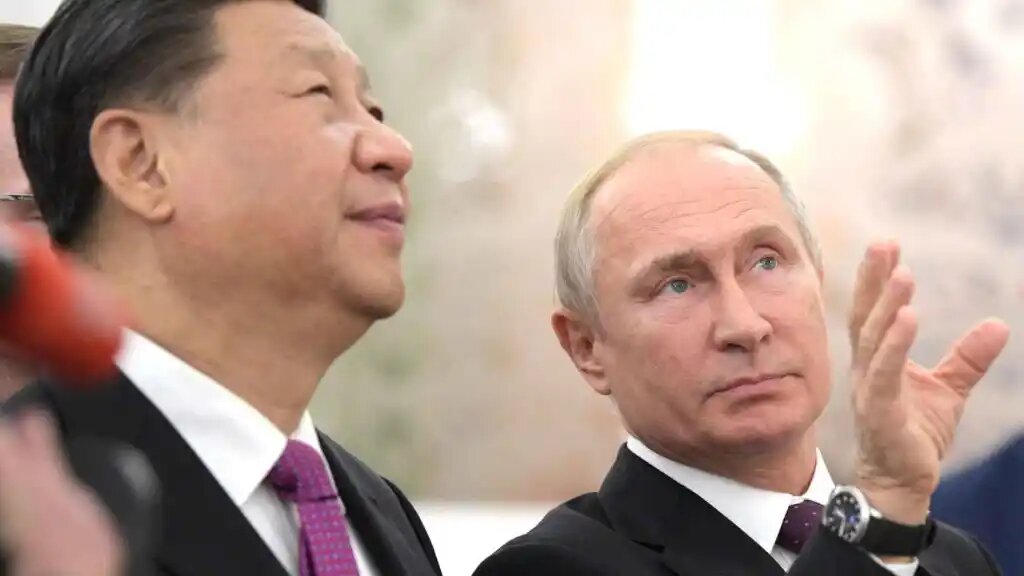"How did we get here?" Jake Tapper asked CNN on Sunday, March 6. His answer was honest and accurate: it has been two decades of misguided optimism and appeasement by Western leaders, of different parties, eager to ignore Vladimir Putin's grave misconduct inside and outside Russia.
In the end, Tapper asked whether any lessons had been learned from all this. He left the answer up in the air, to be pondered by viewers.
I don't think so.
To correct these errors, it is not enough to point them out. Rather, it is necessary to understand the premises —also mistaken— that spawned the West's indecision, confusion and weakness vis-a-vis its main enemies. And it is not only with Russia that mistakes have been made, but also with Iran, Cuba, Venezuela, North Korea, China, and its disgraceful non-state allies (including international terrorism and organized crime).
To answer Tapper's question, I think it is necessary to reconsider at least four false and dangerous foreign policy premises that have been accepted over the last two decades by important open societies.
The first unsuccessful premise is that we have been in "peacetime."
This is not true. Actually, we have been through an ongoing global conflict that occasionally takes the form of military flare-ups. The fact that there are no declarations of war does not mean that they do not exist. The world did not enter an era of peace at the end of the Cold War.
Rather, a new, global and often violent struggle against open societies has emerged in this century, now driven by autocrats and kleptocrats linked to criminal and terrorist non-state actors. New doctrines of conflict have been formulated that avoid conventional and nuclear confrontation, instead opting for fourth-generation, hybrid and asymmetrical wars with the aim of destabilizing and overthrowing democratic governments and replacing them with allies who retain permanent power.
The second erroneous premise is that there is no longer a common enemy like in the Cold War.
There is. Despite the notable differences between Iranian theocracy, the new mafias in Havana, Caracas, Moscow, China's autocratic neo-capitalist class, and the North Korean terrorist monarchy, all consider open and democratic societies, in particular the US, their main enemy and consider themselves in permanent conflict with them, despite no formal declarations to this effect.
The third flawed premise has been assuming that there is a universal logic shared by us and these enemies of freedom.
There is not. According to this deluded idea, we supposedly share a common rationale with our mortal enemies, which might allow us to reach agreements of mutual convenience with this motley range of miscreants. Inspired by this mistake, the need to persuade them by threatening the use of force, direct or indirect, in international relations is ruled out. If this unsound logic were true, we could obtain lasting commitments from aggressive, bellicose, murderous, fanatical, drug-traffickers and terrorists.
Those who believe that Chamberlain's failure with Hitler belongs to a bygone from which we have graduated in the 21st century do not realize that contexts may vary, but certain features of human psychology endure. It is illusory to think of the possibility of reaching understandings with Putin, the ayatollahs, Maduro, Castro and the irregular assortment of criminal groups associated with them based on the premise that we all share common aspirations, values or basic visions, because we do not, in fact, exist on the same wavelength. The likelihood of engaging in dialogue with them to reach some constructive consensus based on common aspirations is nil. Thus, endeavoring to do so is analogous to the prosecutors, judges and federal agents who acted to bring down Al Capone instead trying to negotiate with him.
The fourth false premise is that, in 2022, the main challenge to international security is the environment.
This can be stated in the medium and long term, but if other immediate threats are not addressed, we will not even be able to deal with them. Since the end of the Cold War the idea spread that we were already living in a post-global-conflict era, which allowed us to adopt a new planetary wisdom. This is why we prioritized other challenges that had previously been dangerously ignored, such as the negative impacts of fossil fuels on the environment. But cruder realities have been re-emerging for two decades.
Ukraine has reminded us that, unfortunately, we do not yet live in a historical era when we can prioritize the dangers posed by geological cycles (which sometimes take centuries and millennia to reach critical junctures) over and above geopolitical dangers, which continue to exist, and can worsen overnight, with dramatic, immediate effects.
It is not a question of turning our backs on environmental issues and neglect investments that may allow new technologies to be found and appropriate infrastructures to be created to advance environmental safety. No. But it would be suicidal to do this at the expense of the resources and policies we need —here and now— to ensure the energy security of democratic countries in the face of the challenge of criminal autocracies in today's world.
Unfortunately, most of the major oil-producing countries are under the control of autocratic elites who are enemies of democratic societies and of the United States. Depending on them while, in the short term, this global conflict worsens, seems to be a crime and a mistake.
Some wrongheaded souls are already calling for China to mediate with Russia in the conflict with Ukraine, and for us to rely on Venezuelan and Iranian oil, rather than Russian. If we do not talk frankly and with aplomb about the premises that gave rise to our past mistakes, we will repeat them. Maybe as early as tomorrow.

Play pool; football near the water. Follow normal life discourse….Es decir; trae la guerra que impulsamos la normalidad…